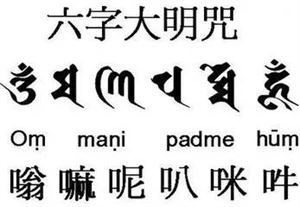
Six famous words"To be or not to be". Outside the Bible, these six words are the most famous in all the literature of the world. They were spoken by Hamlet when he was thinking aloud, and they are the most famous words in Shakespeare because Hamlet was speaking not only for himself but also for every thinking man and woman. To be or not to be, to live or not to live, to live richly and abundantly and eagerly, or to live dully and meanly and scarcely. A philosopher once wanted to know whether he was alive or not, which is a good question for everyone to put to himself occasionally. He answered it by saying: "I think, therefore am." But the best definition of existence ever saw did another philosopher who said: "To be is to be in relations." If this true, then the more relations a living thing has, the more it is alive. To live abundantly means simply to increase the range and intensity of our relations. Unfortunately we are so constituted that we get to love our routine. But apart from our regular occupation how much are we alive? If you are interest-ed only in your regular occupation, you are alive only to that extent. So far as other things are concerned--poetry and prose, music, pictures, sports, unselfish friendships, politics, international affairs--you are dead. Contrariwise, it is true that every time you acquire a new interest--even more, a new accomplishment--you increase your power of life. No one who is deeply interested in a large variety of subjects can remain un-happy, the real pessimist is the person who has lost interest. Bacon said that a man dies as often as he loses a friend. But we gain new life by contacts, new friends. What is supremely true of living objects is only less true of ideas, which are also alive. Where your thoughts are, there will your live be also. If your thoughts are confined only to your business, only to your physical welfare, only to the narrocircle of the town in which you live, then you live in a narrow cir-conscribed life. But if you are interested in what is going on in China, then you are living in China~ if you’re interested in the characters of a good novel, then you are living with those highly interesting people, if you listen intently to fine music, you are away from your immediate surroundings and living in a world of passion and imagination. To be or not to be--to live intensely and richly, merely to exist, that depends on ourselves. Let widen and intensify our relations. While we live, let live! 六字名言
威廉·里昂·费尔浦斯 “是活还是不活。”如果把《圣经》除外,这六个字便是整个世界文学中最有名的六个字了。这六个字是哈姆雷特一次喃喃自语时说的,而这六个字也就成了莎士比亚作品中最有名的几个字了,因为这里哈姆雷特不仅道出了他自己的心声,同时也代表了一切有思想的男男女女。是活还是不活——是要生活还是不要生活,是要生活得丰满充实,兴致勃勃,还是只是活得枯燥委琐,贫乏无味。一位哲人一次曾想弄清他自己是否是在活着,这个问题我们每个人也大可不时地问问我们自己。这位哲学家对此的答案是:“我思故我在。” 但是关于生存我所见过的一条最好的定义却是另一位哲学家下的:“生活即是联系。”如果这话不假的话,那么一个有生命者的联系越多,它也就越有生气。所谓要活得丰富充实也即是要扩大和加强我们的各种联系。不幸的是,我们往往会因为天性不够丰厚而容易陷入自己的陈规旧套。试问除去我们的日常工作,我们的真正生活又有多少?如果你只是对你的日常工作才有兴趣,那你的生趣也就很有限了。至于在其它事物方面一比如诗歌、散文、音乐、美术、体育、无私的友谊、政治与国际事务,等等——你只是死人一个。 但反过来说,每当你获得一种新的兴趣——甚至一项新的造诣——你就增长了你的生活本领。一个能对许许多多事物都深感兴趣的人是不可能总不愉快的,真正的悲观者只能是那些丧失兴趣的人。 培根曾讲过,一个人失去朋友即是死亡。但是凭着交往,凭着新朋,我们就能获得再生。这条对于活人可谓千真万确的道理在一定程度上也完全适用于人的思想,它们也都是活的。你的思想所在,你的生命便也在那里。如果你的思想不出你的业务范围,不出你的物质利益,不出你所在城镇的狭隘圈子,那么你的一生便也只是多方受着局限的狭隘的一生。但是如果你对当前中国那里所发生的种种感到兴趣,那么你便可说也活在中国;如果你对一本佳妙小说中的人物感到兴趣,你便是活在一批极有趣的人们中间;如果你能全神贯注地听点好的音乐,你就会超脱出你的周围环境而活在一个充满激情与想象的神奇世界之中。 是活还是不活——活得热烈活得丰富,还是只是简单存在,这就全在我们自己。但愿我们都能不断阔展和增强我们的各种联系。只要一天我们活着,就要一天是在活着。
 爱华网
爱华网


